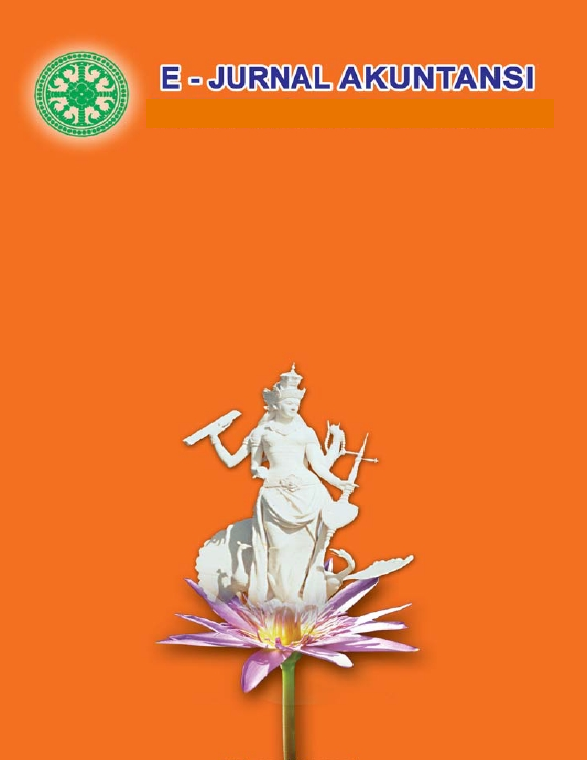Sistem Pembelajaran Online Sebagai Mediator Kreativitas SDM, Ketidakpastian Lingkungan, dan Teknologi Informasi pada Kinerja PTS
Abstract
The purpose of the study was to examine and find empirical evidence regarding the effect of human resource creativity, environmental uncertainty, and the use of information technology on online learning systems, and the effect of online learning systems on the performance of private universities. The research was conducted at private universities throughout Lombok Island, West Nusa Tenggara Province. The total population in this study is 26 private universities, where each university will make 2 people as samples. So that the sample in this study amounted to 52 respondents. The data analysis method used is the PLS-SEM method. The results of the study stated that the creativity of human resources and the use of information technology had a positive effect on the online learning system. Meanwhile, environmental uncertainty has no effect on the online learning system. Furthermore, the online learning system has a positive effect on the performance of private universities.
Keywords: Private Higher Education Performance, Online Learning System, Human Resource Creativity, Environmental Uncertainty, Information Technology
Downloads
References
Alimbudiono, R. S., & Fidelis, A. A. (2004). Kesiapan Sumber Daya Manusia Sub Bagian Akuntansi Pemerintah Daerah “XYZ” Dan Kaitannya Dengan Pertanggungjawaban Keuangan Daerah Kepada Masyarakat: Renungan Bagi Akuntan Pendidik. Jurnal Akuntansi dan Keuangan Sektor Publik, 5 (2), hal. 18-30.
Bastian, I. (2001). Akuntansi Sektor Publik. Penerbit BPFE, Universitas Gajah Mada. Yogyakarta. Ikatan Akuntansi Indonesia.
Bayat, R.F. (2011). Impact on the Productivity of Human Resources Management, Performance Evaluation. Australian Journal of Basic and Applied Sciences, 5 (12), pp. 1629-1635.
Darlis, E. (2002). Analisis Pengaruh Komitmen Organisasional dan Ketidakpastian Lingkungan terhadap Hubungan Antara Partisipasi Anggaran dengan Senjangan Anggaran. Jurnal Riset Akuntansi Indonesia, 5, (1), hal. 85 – 100.
Gibson, J. L., & John, M. I., & James, H.D.JR. (2012). Organization: Behavior, Struktur, Process. Penerbit Mc.Graw-Hill
Govindarajan, V. (1986). Impact of Participation inThe Budgetary Process on Managerial Attitudes and Performance: Universalitic and Contingency Perspective. Decision Sciences, (17), pp. 496-516.
Gunawan, Y. S. (2013). Pengaruh Ketidakpastian Lingkungan, Komitmen Organisasi, Informasi Asimetri Terhadap Pengelolaan Keuangan Pada perusahaan Manufaktur. Fakultas Bisnis Universitas Katolik Widya Mandala.
Harbani, P. (2008). Teori Administrasi Publik. Bandung: Alfabeta.
Indriasari, D., & Nahartyo, E. (2008). Pengaruh Kapsitas Sumber Daya Manusia, Pemanfaatan Teknologi Informasi, dan Pengendalian Intern Akuntansi Terhadap Nilai Informasi Pelaporan Keuangan Pemerintah Daerah (Studi pada Pmerintah Kota Palembang dan Kabupaten Ogan Ilir). Disampaikan pada SNA Pontianak.
Karpagam, U.P.L & P. Suganthi. L. (2010). A Strategi Framework for Managing Higher Education Institutions. Advances in Management, 3 (10).
Kartika, A. (2010). Pengaruh Komitmen Organisasi Dan Ketidakpastian Lingkungan Dalam Hubungan Antara Partisipasi Anggaran Dengan Senjangan Anggaran (Studi Empirik Pada Rumah Sakit Swasta Di Kota Semarang). Kajian Akuntansi, 2 (1), hal. 39-60.
Kevin, R. M., & Jeanette, N. C. (1995). Understanding Performance Appraisal: Social, Organizational, and Goal-Based Perspective. California: Sage Publication, hal. 113.
Mantra, I. B. N., & Widiastuti, I. A. M. S., & Pramawati, A. A. I. Y. (2020). Peningkatan Kompetensi Mengajar Secara Online Bagi Para Guru Selama Pandemi Virus Corona. Jurnal Abdi Dharma Masyarakat (JADMA), 1(1), hal. 12-20.
Milani, K. (1975). The relationship of participation in budget-setting to industrial supervisor performance and attitude: A field study. The Accounting Review, pp. 274-284.
Mulyadi. (2001). Balance Scorecard: Alat Manajemen Kontemporer Untuk Pelipatgandakan Kinerja Laporan Keuangan Perusahaan. Jakarta: Salemba Empat.
Notoatmodjo, S. (2003). Pengembangan Sumber Daya Manusia. Jakarta: Rineka Cipta
Pakpahan, R., & Fitriani, Y. (2020). Analisa Pemanfaatan Teknologi Informasi Dalam Pembelajaran Jarak Jauh Di Tengah Pandemi Virus Corona Covid-19. Journal of Information System, 4 (2), hal. 30-36.
Purwanto, A., & Pramono, R., & Asbari, M., & Hyun, C. C., & Wijayanti, L. M., & Putri, R. S. (2020). Studi Eksploratif Dampak Pandemi COVID-19 Terhadap Proses Pembelajaran Online di Sekolah Dasar. EduPsyCouns: Journal of Education, Psychology and Counseling, 2(1), pp. 1-12.
Simamora, H. (2001). Manajemen Sumber Daya Manusia. Edisi kedua. Penerbit STIE YKPN. Yogyakarta.
Simatupang, N.I., & Sitohang, S.R.I., & Situmorang, A.P., & Simatupang, I.M. (2020). Efektivitas Pelaksanaan Pengajaran Online Pada Masa Pandemi Covid-19 Dengan Metode Survey Sederhana. Jurnal Dinamika Pendidikan, 13 (2), hal. 197-203.
Yahya, A., & Amalia, R. (2016). Pengaruh Sistem Kerja Terhadap Kinerja Perguruan Tinggi Dan Implikasinya Terhadap KepercayaanMahasiswa Universitas Syiah Kuala Banda Aceh. Jurnal Pencerahan, 10 (1), hal. 1-110

This work is licensed under a Creative Commons Attribution-ShareAlike 4.0 International License.

















